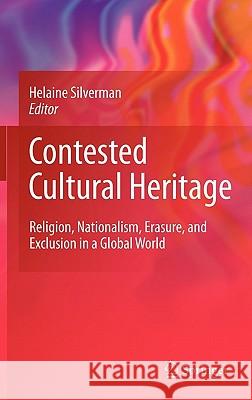Contested Cultural Heritage: Religion, Nationalism, Erasure, and Exclusion in a Global World » książka
Contested Cultural Heritage: Religion, Nationalism, Erasure, and Exclusion in a Global World
ISBN-13: 9781441973047 / Angielski / Twarda / 2010 / 286 str.
Contested Cultural Heritage: Religion, Nationalism, Erasure, and Exclusion in a Global World
ISBN-13: 9781441973047 / Angielski / Twarda / 2010 / 286 str.
(netto: 191,66 VAT: 5%)
Najniższa cena z 30 dni: 192,74
ok. 16-18 dni roboczych.
Darmowa dostawa!
Cultural heritage is material - tangible and intangible - that signifies a culture's history or legacy. It has become a venue for contestation, ranging in scale from protesting to violently claimed and destroyed. But who defines what is to be preserved and what is to be erased? As cultural heritage becomes increasingly significant across the world, the number of issues for critical analysis and, hopefully, mediation, arise. The issue stems from various groups: religious, ethnic, national, political, and others come together to claim, appropriate, use, exclude, or erase markers and manifestations of their own and others' cultural heritage as a means for asserting, defending, or denying critical claims to power, land, and legitimacy. Can cultural heritage be well managed and promoted while at the same time kept within parameters so as to diminish contestation? The cases herein rage from Greece, Spain, Egypt, the UK, Syria, Zimbabwe, Italy, the Balkans, Benin, and Central America.











